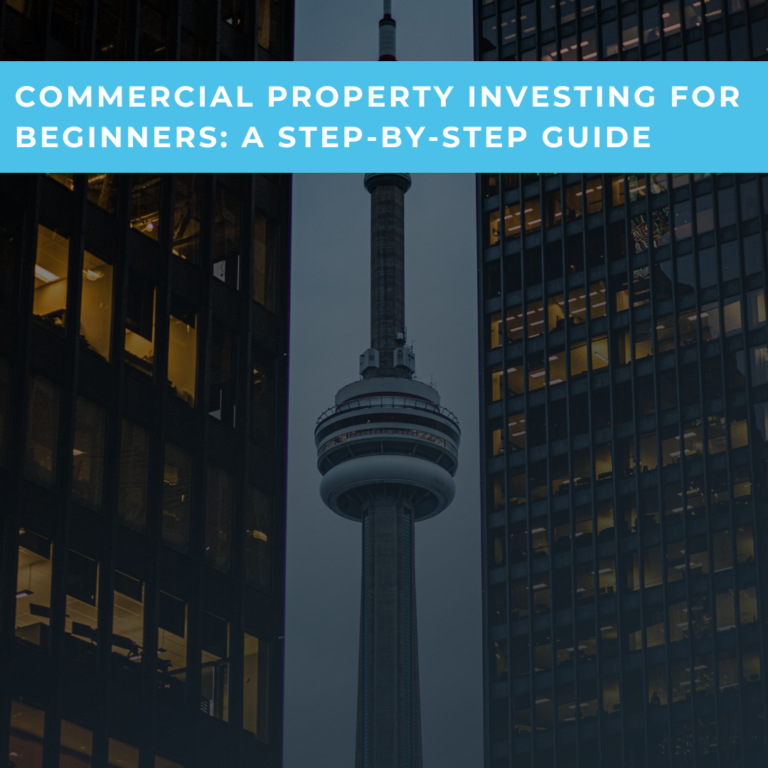
Finding the Right Commercial Property
Selecting the right commercial property is a critical step in the investment process. This involves conducting thorough market research to identify potential areas with high growth prospects.
Researching Potential Markets
Identifying the right market is a cornerstone of successful commercial property investment. Beginners should start by analyzing local and regional economic indicators such as employment rates, population growth, and local business health. Look for areas with a rising demand for commercial spaces, indicating a robust and growing business environment. Also, consider the accessibility, visibility, and traffic patterns of potential locations, as these greatly influence tenant demand. Stay informed about future development plans in the area, as these can significantly impact property values. Networking with local realtors and joining real estate investment groups can provide valuable insights and opportunities.
Evaluating Property Types
Commercial properties come in various forms, including retail spaces, offices, warehouses, and industrial buildings. Each type has its own set of risks and rewards. Retail spaces, for instance, rely heavily on location and consumer traffic, while office spaces are more dependent on the local business climate. Industrial properties, like warehouses, can offer long-term leases but might require more significant initial investment for modifications. Assess the demand and supply dynamics for each property type in your target market. Understanding the unique characteristics and market demands of each property type is essential for making an informed investment decision.
Financial Planning for Investment
Financial planning is a cornerstone of successful commercial property investment.
Assessing Your Budget
Begin your investment journey by realistically assessing your financial capability. Determine how much capital you can allocate to this investment without compromising your financial stability. Consider not only the purchase price but also additional costs like renovations, legal fees, and ongoing maintenance. It’s important to have a cushion for unexpected expenses. A sound budget plan will guide your property search and prevent overextension. Remember, commercial property investment is a long-term commitment; ensure your budget aligns with your investment goals and timeline.
Understanding Financing Options
Commercial real estate financing differs significantly from residential property financing. Familiarize yourself with the various financing options available, including traditional bank loans and commercial mortgages. Understand the terms, interest rates, and requirements of each option. It’s crucial to have a good credit score and solid business plan to secure favorable loan terms.
The Process of Acquiring a Commercial Property
The process of acquiring a commercial property involves several key steps.
Navigating Property Search
The search for the right commercial property requires diligence and patience. Utilize online commercial real estate platforms, work with local real estate agents specializing in commercial properties, and consider networking with other investors. When evaluating properties, consider factors like location, tenant mix (for multi-tenant properties), and physical condition of the building. Also, assess the local market trends and potential for future growth. Visiting properties in person is crucial to get a true sense of the property’s potential and any possible issues that might not be evident from a listing.
Making an Offer and Closing the Deal
Once you’ve identified a potential property, the next step is making an offer. This process involves several critical steps, including due diligence (such as property inspection, reviewing tenant leases, and verifying zoning regulations) and negotiating the purchase terms. A well-crafted offer should consider the property’s market value, potential income, and any necessary repairs or upgrades. The closing process includes finalizing financing, conducting a title search, and handling various legal and administrative tasks. It’s vital to be thorough and meticulous during this phase to ensure a smooth transaction.
Managing Your Commercial Property
Effective management of a commercial property is essential to maximize its value and income potential.
Tenant Management Strategies
Successful tenant management is critical for the steady cash flow and overall success of your investment. This includes selecting the right tenants, setting appropriate lease terms, and maintaining good tenant relations. Conduct thorough background and credit checks on potential tenants to ensure reliability and financial stability. Draft clear lease agreements that outline responsibilities, rules, and expectations. Building a positive relationship with your tenants can lead to long-term leases and lower turnover rates. Address tenant concerns promptly and keep open lines of communication to foster a cooperative and respectful environment.
Growing Your Investment
Growing your investment in commercial real estate involves more than just maintaining the property.
Long-term Investment Strategies
To grow your investment, consider strategies like property upgrades to increase rental income, refinancing to better loan terms, or purchasing additional properties. Staying informed about market trends and potential changes in the local economy can help identify the right time to make such moves. Consider diversifying your portfolio by investing in different types of commercial properties or in different geographical areas. This can help spread risk and increase potential returns. Continuously educating yourself and seeking advice from experienced professionals can also contribute to the growth of your investment.
When to Consider Selling
Deciding when to sell a commercial property is as crucial as knowing when to buy. Factors influencing this decision include market conditions, property performance, and your personal investment goals. If the property’s value has significantly appreciated or if the market is experiencing a high, selling might be advantageous. Also, consider selling if the property no longer aligns with your investment strategy or if you can reinvest the proceeds into a more profitable opportunity. Regularly evaluate your portfolio to determine if a property still meets your investment criteria.
Risks and Mitigation in Commercial Property Investing
Investing in commercial property comes with inherent risks, including market fluctuations, tenant-related issues, and property management challenges.
Identifying Potential Risks
Commercial property investing, like any investment, comes with its set of risks. These include market risk, where the value of your property could decrease due to economic downturns or oversupply in the market. Tenant-related risks, such as vacancies or non-payment, can also impact your revenue. Additionally, there are risks associated with property management, including unexpected maintenance costs and legal issues. Understanding these risks is crucial for making informed investment decisions.
Strategies for Risk Mitigation
To mitigate these risks, conduct thorough market research before investing and diversify your investments. Maintain a robust tenant screening process to ensure reliable tenants. Adequate insurance coverage is essential to protect against physical property damage and liability claims. Building an emergency fund can provide a financial cushion for unexpected expenses. Staying informed about market trends and regulatory changes can also help in making proactive adjustments to your investment strategy.
Building a Successful Investment Portfolio
In conclusion, commercial property investing can be a rewarding venture for beginners, provided they approach it with diligence, proper research, and a clear strategy. It involves understanding the market, effective financial planning, careful property selection and management, and being aware of and mitigating risks. Continuous learning and adapting to market changes are key to building a successful and resilient investment portfolio in commercial real estate. As with any investment, patience and long-term planning are vital for achieving substantial returns. Contact us for guidance on your commercial property investing journey!
Frequently Asked Questions
1. How can I grow my commercial property investment effectively?
Grow your investment by upgrading properties, refinancing, and diversifying your portfolio across different property types and locations.
2. What factors should I consider for industrial property investment?
Consider factors like the demand for industrial space, the potential for long-term leases, and the initial investment for modifications.
3. How can I determine the right type of commercial property to invest in?
Assess your investment goals, market demand, and your familiarity with different property types to choose the right investment.
4. What are the key considerations in the property search phase?
Consider location, tenant mix, physical condition, local market trends, and potential for future growth.
5. Why is diversification important in a commercial real estate portfolio?
Diversification across different property types and locations spreads risk and can lead to more stable returns.


